Cargando...
Recursos educativos
-
Nivel educativo
-
Competencias
-
Tipología
-
Idioma
-
Tipo de medio
-
Tipo de actividad
-
Destinatarios
-
Tipo de audiencia
-
Creador
Lo más buscado
- O aberta O tancada
- Lecturas interactivas
- Carnaval
- Aprender a estudiar
- País Vasco y Romanización
- Huerto escolar
- Actividades musicales
- Diccionario alfabético
- Música rock
- Ahorrar agua
- Regiones de Alemania
- Ejercicios escolares para niños de 9 años
- Actividades de lenguaje
- Múltiplos de 9
- Historia universal
-
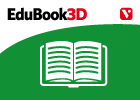
End-of-unit activities - Medieval Cities
EduBook Organización
- 5982 visitas
In the 12th and 13th centuries, a period of economic growth led to the rebirth of cities. Cities became important centres of artisan activity and trade. Palaces, cathedrals and markets were built in the…
-

Autoevaluación 2 - La Prehistoria
EduBook Organización
- 5945 visitas
Indica qué afirmaciones sobre las características de los periodos prehistóricos son verdaderas y cuáles son falsas: La producción de alimentos se inició en el Creciente Fértil. La cerámica…
-
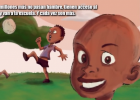
África en positivo
Cristina Blas Docente
- 1 lo usan
- 5510 visitas
Aprovechando que la historia que nos cuenta la lectura se desarrolla en África, podemos proponer a nuestros alumnos ver el vídeo sobre el continen-te africano que encontramos en esta página web. Se…
-
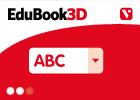
Verdadero/falso. "Lazarillo de Tormes"
EduBook Organización
- 3 lo usan
- 5299 visitas
Indica si estas afirmaciones sobre el Lazarillo de Tormes son verdaderas (V) o falsas (F): El protagonista, Lázaro, narra su propia vida. Lázaro es hijo de padres con honra. El protagonista se vale de…
-

Check. A bipolar world: the Cold War and decolonisation (1945-1991)
EduBook Organización
- 5887 visitas
Remember what you have studied in this united and answer the questions: Why were two opposing blocs formed after the Second World War? What was the Cold War? What was peaceful coexistence? What factors…
-
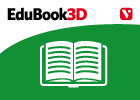
End-of-unit evaluation - Art in the 19th century
EduBook Organización
- 5879 visitas
The end of the 18th century marked a transition from Rococo art, which embodied the aesthetics of the Ancien Régime, to neoclassicism. Neoclassicism was based on the classical art and culture of…
-

De relaciones con la historia y las culturas
EduBook Organización
- 1 lo usan
- 5046 visitas
En este eje lograrás Aproximarte al conocimiento como científico social al: Formular diversas preguntas acerca de hechos políticos, económicos, sociales y culturales. Manejar conocimientos propios…
-
Verdadero/falso. Cultura y arte ibéricos
EduBook Organización
- 5876 visitas
Indica si son verdaderas o falsas estas afirmaciones: Los alfareros ibéricos no conocían el torno. Los iberos conocían la escritura y tenían su propio alfabeto. Las esculturas llamadas damas, como…
-
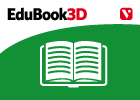
End-of-unit activities - Art in the 19th century
EduBook Organización
- 5848 visitas
The end of the 18th century marked a transition from Rococo art, which embodied the aesthetics of the Ancien Régime, to neoclassicism. Neoclassicism was based on the classical art and culture of…
-
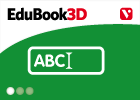
Complete. The formation of opposing blocs
EduBook Organización
- 5840 visitas
Complete these sentences about the formation of opposing blocs with the missing words: After the Second World War, the Yalta and Conferences divided Europe into distinct areas. The two represented…
Te estamos redirigiendo a la ficha del libro...












